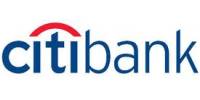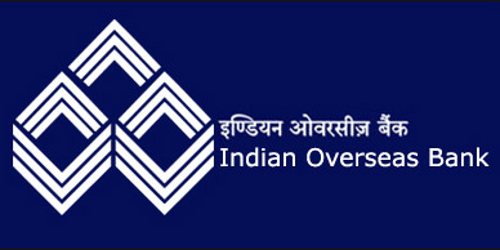1.1 Background of the Study
Now a day, education is not just limited to books and classrooms. In today’s world, education is the tool to understand the real world and apply knowledge for the betterment of the society as well as business. From education the theoretical knowledge is obtained from courses of study, which is only the half way of the subject matter. Practical knowledge has no alternative. The perfect coordination between theory and practice is of paramount importance in the context of the modern business world in order to resolve the dichotomy between these two areas. Therefore, an opportunity is offered by Department of Business Administration, IIUC(DC) , for its potential BBA Degree holders to get at least 90 days practical experience, which is known as “Internship Program”. And a report is required to be prepared to summarize the intern’s analysis, findings and achieved knowledge from this program.
So this internship report is a basic academic requirement for the completion of BBA Program in major area of Marketing under Department of Business Administration, IIUC(DC). The report title“ A Comparative Study between Conventional and Islamic Banking with reference to General Banking Operations of Islamic Banking System: A Case Study on AB Bank Ltd (Islami Banking Branch) ” is based on the study done in the internship period in AB Bank Ltd, Islamic Banking Branch. It contains a concrete idea about the General Banking Operations from Islamic General Banking perspective with a comparative picture of between Islamic and Conventional Banking which topic is assigned by my supervisor and is to be submitted to the department as well as to the bank.
1.2 Origin of the Study
This report titled “A Comparative Study between Conventional and Islamic Banking with reference to General Banking Operations of Islamic Banking System: A Case Study on AB Bank Ltd (Islami Banking Branch)” is prepared to fulfill the requirement if internship program of the BBA Program in the Department of Business Administration in IIUC,DC. This topic has been assigned
and supervised by Mr. Md. Tarikul Islam Lecturer, Department of Business Administration IIUC(DC). I have tried my level best to present my experience of the practical orientation in this report.
1.3 Objectives of the Study
1.3.1 Primary Objective
The primary objective of this report is to fulfill the requirement of BBA program containing the completion of three-month internship program and preparation of internship report accordingly.
1.3.2 Specific Objectives
The secondary objectives of the study are as follows:
i)To get an overview of the banking system of AB Bank Ltd.
ii)To know the history and development of ABBL.
iii)To gain practical experience on different functions of different departments like General Banking especially from the perspective of Islamic Banking.
iv)To know about the rules and regulations of ABBL.
v)To acquaint with the over all services which are provided by AB Bank Ltd
vi)To analyze the year wise performance and depict the contribution of Islamic banking Branch of ABBL to its overall performance.
vii)To analyze the performance of the bank in terms of the profitability of the Islami Banking branch over the overall banking performance.
viii) To get a clear idea about the Comparisons between Conventional and Islamic Banking.
1.4 Scope of the Study
The study would focus on the following areas of AB Bank Limited.
- General Banking system of ABBL of its Islamic Banking Branch.
- A brief comparison of Islamic banking with Conventional Banking
- Performance analysis in different sectors of AB Bank Ltd.
Each of the above areas is critically analyzed in order to determine the justification of Islami Banking branch or Islamic Banking
1.5 Methodology of the Study
This report has been prepared on the basis of the experience gathered during the period of internship. For preparing this report, I have undergone group discussion, collected data and asked some questions and have taken interviewed to the bank officials. I have also gone through different brochures, circulars and reports of the bank. However, I have collected my data from the following sources which helped me to prepare this report.
i) The primary sources of data include the followings:
- Face to face conversation with the bank officers and staffs
- Direct conversation with the clients
- Practical Deskwork.
ii) The secondary sources of data include as under:
- Annual report of AB Bank Limited
- Different manuals and publications of Islamic Banking System
- Unpublished data received from the Branch
- Different text books
- Different circulars sent by Head Office of AB Bank Limited and Islami Bank Bangladesh Limited.
1.6 Limitations of the Study
Finally I want to talk about my limitations that I had to face during the completion of the report. On the way of preparing of this report, I have faced following problems that may be termed as the limitations of the study.
i) The main constraint of the study is inadequate access to information, which has hampered the scope of analysis required for the study.
ii) Limitation of Bank’s policy of not disclosing some data and information for obvious reasons, which could be very much useful. While collecting data i.e. interviewing the employees, they did not disclose much information for the sake of the confidentiality of the organization.
iii) Due to time limitations many of the aspects cannot be discussed elaborately in the report.
iv) Since the bank personals were very busy, they could provide me very little time.
v) Another problem is that it creates a lot of confusions regarding verification of data in case of interview from more than one person.
vi) I carried out such a study on Islamic Banking for the first time, so inexperience is one of the main constraints of the study.
vii) Entrance to every nock and corner of the bank was not possible for me.
2.1 Introduction
The concept of Islamic Banking represents a radical departure from traditional banking. Islamic banking has to derive its inspiration from the religious edicts of Islam and has to mould its operation within the framework of the teachings of Islam. The most distinctive features of Islamic Banking are its total abstinence from interest in observance of Islamic prohibition of all interest-based transactions. The Islamic banks organize their operation on the basis of profit/ loss sharing and other modes that are permitted in Islam. Alongside the conventional interest bearing banking system, Bangladesh entered into an Islamic banking system (profit-loss sharing) in 1983. At present, out of 48 banks in Bangladesh, 7 private commercial banks are operating as full-fledged Islamic banks and 10 conventional banks are partially involved in Islamic banking in a total of 20 branches.
2.2 Concept of Islamic Banking
The General Secretariat of the Organization of the Islamic Conference (OIC) defines an Islamic Bank as “Islamic Bank is a financial Institution whose statutes, rules and procedures expressly state its commitment to the principles of Islamic Shari’ah and to the banning of the receipt and payment of interest on any of its operations.”
All OIC countries including Bangladesh have approved the above definition of Islamic Bank. The Islamic Development Bank and other national and multi-national Islamic Banks have also adopted the above definition as their operating guide.
2.3 Essential features of Islamic banking
Prohibition of Interest:
The traditional capitalist banking system depends on interest. It receives interest for providing loans and pays interest for taking loans. The spread between these two interests is the source of its profit. But according to Islamic Shari’ah all types of interest is banned. So, Islamic Bank does not carry on business of interest and it completely avoids the transaction of interest.
Investment based on profit:
After departing from interest, the alternate ways of income for Islamic Bank are investment and profit. Thus Islamic Bank gives up any transaction of interest and makes investments based on profit. Bank distributes its profit to its depositors and shareholders.
Investment in Halal Business:
Islamic Shari’ah has banned the business of haram goods. For example Islam not only forbids the drinking of alcohol but also banned any business of alcohol. Therefore Islamic Bank does not get any haram business and only do halal business.
Halal Paths and Procedures:
Islamic Shari’ah also reject any haram path or process in case of a halal business. Therefore Islamic Banking system only allows the halal path procedures of Halal business.
2.4 History and Growth of Islamic Banking
The Islamic banking movement as we know it today is recent phenomenon. The history of modern Islamic Banking dates back to the 1950s when a small private Islamic Bank appeared in Pakistan but subsequently windup. In the decade of 1950s, the concept of Islamic banking was a matter of thinking and research and the result was preserved in the papers of different scholars of the Muslim world. The 1960s was the decade of practical experiment and 1970s was the decade for establishment. The decade of 1980s was the decade of success and expansion at a faster rate.
During 1960s, it was observed that the Muslims of Malaysia used to save primarily for performing Hajj and such savings are mostly kept idle in pillows, under mattresses and floors for avoiding interest, which was unproductive and damaging for the growth and development of the economy. For utilizing these savings, the Malaysian Government in 1962 establish an interest free financial institution known as “Pilgrim Savings Corporation”. Though it was not a full-fledged bank, even then we can say that it was the beginning of an institution free of interest, which is unconditionally prohibited in Islam.
‘Mitghamr Bank’ is pioneer of modern Islamic Banking which was established by Dr. Ahmed-El-Naggar in 1963 by his personal endeavor at Mitghamr in Egypt with a view to bring some development in socio-economic field in the process of Islam. The conducted its banking operation successfully in the light of Islamic Shari’ah for about of five years. Now the Islamic Bankers of the world has treated the short life of Mitghamr Bank as the first model of Islamic Banking. A survey report by the national Institute for management development, Cairo, Egypt shows that the Mitghamr Bank was tremendously successful in achieving its objectives. In addition, the tremendous success of the bank was the cause of closure by the vested interest in 1967.
Islamic Development Bank (IDB) was established in 1975 and during the following the years 7 (seven) Islami Banks and financial institutions namely (i) Dubai Islami Bank , (ii) Kuwait Finance House, (iii) Faisal Islami Bank, Sudan (iv) Jordan Islami Bank for Finance and Investment (v) Islamic Banking System International Holding S. A., Luxembourg, (vi) Faisal Islami Bank of Egypt and (vii) Islamic Investment Corporation Ltd, Sharjah were established.
In 1978, Islamic Foreign Minister Conference in Dakar (senegal) recommended to the members of OIC to make systematic efforts to establish Islamic Banks gradually and during the next three years of their recommendation, 20 Islamic Banks and Financial Institutions came into being.
Till now near about 300 hundred Islamic Banks and financial Institutions in about 40 countries of Asia, Africa, Europe, America and countries like U.K., U.S.A., Germany, Argentina, Denmark, Luxembourg, Switzerland and India have been established. The banking system of Iran and Sudan has been totally remodeled on the basis of Islamic shari’ah.
2.5 Islami Banking in Bangladesh
Bangladesh is one of the largest Muslim Countries I the world. The people of this country are deeply committed to Islamic way of life as enshrined in the holy Qur’an and Sunnah. Naturally, it remains an ordeal desire in their hearts to fashion and design their economic lives in accordance with the prospects of Islam. With this end in view, in August 1974, Bangladesh signed the charter of Islamic Development Bank (IDB) and committed itself to recognize its economy and financial system as per Islamic Shari’ah.
In November 1980, Bangladesh Bank, the country’s central bank, sent a representative to study the working system of several Islamic banks abroad.
In January 1981, the president of peoples Republic of Bangladesh while addressing the 3rd Islamic Summitr Conference held at Makkah and Taif suggested, “The Islamic countries should develop a separate Banking system of their own in order to facilitate their trade and commerce”. This statement of the President reflected the people’s desire, attitudes and commitment of Bangladesh towards establishing Islamic Banks and Financial Institutions in the country.
In November 1982, a delegation of Islamic development Bank (IDB) visited Bangladesh and showed keen interest to participate in establishing a joint venture Islamic Bank in the private sector. They found a lot of works have already been done and Islamic banking was in a ready form for immediate introduction. Two professional bodies namely Islamic Economic research Bureau(BIBA) made significant contribution towards introduction of Islamic Banking in Bangladesh.
At last the long drawn struggle to establish an Islamic bank in Bangladesh became a reality and Islami Bank Bangladesh Limited (IBBL) was incorporated on 13th March, 1983 and commenced banking operations on and from 30th March1983 as the first Islamic Bank in the south East Asia. It is the first joint venture in Bangladesh with the equity participation of Islamic Development bank (IDB), Kingdom of Saudi Arabia, Bahrain and Kuwait.
Thereafter as of now, six other Bangladeshi Banks have launched banking operations in the private sector based on Islamic shari’ah. Some other newly established traditional private banks have also set up some Islamic banking branches in the country.
2.6 Growth of Islamic Banking in Bangladesh
Bangladesh is the third largest Muslim country in the world with around 139 million populations of which 90 percent are Muslim. Islamic banking system started operation in Bangladesh in 1983 with the establishment of first Islamic bank “Islami Bank Bangladesh Limited”. The growth of Islamic banking in Bangladesh is progressing day by day. The remarkable shifting or conversion of the conventional banks and their branches into the Islamic lines, signals high acceptance of the interest-free banking by the public in general. The Islamic banking industry continued to show strong growth since its inception in 1983 to June 2008 in tandem with the growth in the economy, as reflected by the increased market share of the Islamic banking industry in terms of assets, financing and deposits of the total banking system. The products being offered by these banks range from consumer credit to long term finance for big investment projects using Islamic modes of financing such as Marahaba, Bia-Muazzal and Ijarah.
The Islamic banks in Bangladesh started from a very limited resource base right from the beginning. But with the passage of time, they have excelled strong performance in respect of mobilization of deposits as well as in investments. Total deposits of the Islamic banks and Islamic banking branches of the conventional banks stood at Taka 232981.00 million at end June 2006. This was 28.46 percent of the deposits of all private commercial banks and 9.67 percent of the deposits of the total banking system at the end of June, 2006. Total investment of the Islamic banks and the Islamic banking branches of the conventional banks stood at Taka 210493.80 million at end June 2006. This was 29.35 percent of all private banks and 14.88 percent of the total banking system of the country.
The Statutory Liquidity Requirement (SLR) for the Islamic banks is fixed at 10 percent since inception of first Islamic Bank in 1983. This has remained unchanged till date while SLR for the traditional commercial banks has been changed several times which presently is fixed at 18 percent. The low requirement of SLR for Islamic banks is due to the non-holding of interest bearing types of eligible securities. In order to overcome the situation, the Bangladesh Bank has issued an Islamic Bond on behalf of the government namely “Government Islamic Investment Bond (GIIB)” in October 2004, which is governed by the Islamic Shari’ah. It is evident from the Table that Islamic banks have been facing excess liquidity problems. Excess liquidity of the Islamic banks and Islamic banking branches as well stood at Taka 8956.80 million as at end June 2006 (19.08 percent of private banks and 8.19 percent of all banks) which originated due mainly to the non-responsiveness of the good borrowers for investment demand and absence of adequate interest free financial instruments and an organized Islamic money market in the country as well. However, efforts are underway to develop Islamic inter-bank market instruments to help banks in managing their liquidities.
The role of Bangladesh Bank in regulating, guiding and supervising the Islamic Banks in Bangladesh in accordance with Islamic Shari’ah is at the preparatory stage. The inspectors and supervisors of Bangladesh Bank have been undergoing massive training programme on Islamic banking both at home and abroad to be equally familiar with the technicalities of the different operational methodologies of the Islamic banking system.
2.7 Characteristics of Islamic Banking
Islamic Banking is a progressive and revolutionary banking system, working effectively and reputedly in modern days in many parts of the globe. Sin developed and de3veloping countries, this unique banking system works side by side with other conventional banking.
An Islamic bank may be defined as a financial intermediary whose objectives and operations as well as principles and practices must conform to the principles of Islamic Law (Shari’ah) and consequently is conditioned to operate all its activities without interest. The introduction of Islamic Banking in modern world is based on the principles of Islamic economics. The aim of Islamic economics, as observed by the Muslim Scholars, is not only the elimination of interest-based transactions and the introduction of Zakah (Contribution to poor) system but also the establishment of just and balanced social order free from all forms of exploitation. Islamic Banks play a vital role in achieving this balanced and social order and establishing ideal Islamic societies in Muslim countries.
An Islamic bank is not only a banker but also a partner in business. The system essentially involves sharing of risk between the owner of capital and entrepreneurs, as well as sharing the result of the collective efforts. Thus, it differs from a interest-free system in which the risk is mainly borne by the entrepreneur or by the user of capital. In other way we may call Islamic Banking as participatory banking.
2.8 Objectives of Islamic Banking
The fundamental objective of Islamic banking is to bring about departure from the conventional system moving from debt-based relationship to an equity based and stake taking economy. While there are scopes for some debt-based transactions of the principle of quard-e-hasana, the overall trust of the Islamic banking towards equity based and risk sharing arrangements. This is distinct from the capitalist approach where the whole economy is revolved round making money by manipulating, managing the evils of interest and compounding interest mechanism. This is the root cause of exploitation in society and leads to inequitable distribution of income and wealth in the economy generally the objectives of Islamic banking are-
- Providing banking services of the highest standard according to Islamic Shari’ah without dealing in Riba (interest on money) and by using the-state-of-the-art technology in computer, telecommunication and information system.
- Investing funds prudently to achieve optimum profits for the mutual benefit of customer and the bank.
- Coordination, cooperation and integration with other financial bodies that apply Islamic Shari’ah in their dealings, in order to support creating a base and regulation for an Islamic financial system
- Development of the Islamic society in all fields of the economy by investing in the industries, agriculture, commerce and real estate in order to provide job opportunities.
- Promotion of social benevolence through its Islamic methods particularly through Zakah.
- Contributing to the welfare of the society in line with the five main tenants of Islam, namely protection of life, purity of mind, property, honour and social justice.
- Promoting the savings habit and encouraging people to invest wisely within the parameters of Islamic Shari’ah through investment and finance instruments to suit individual requirements.
- Making available the necessary capital for entrepreneurs for the establishment of economic projects and creation of alternative instruments according to Islamic Shari’ah
2.9 Financial Framework of Islamic Banking
Islamic banking is based on an ethical framework. It is not only a shifting from a debt-based economy to an equity-based economy but also a movement from pecuniary situation to an economy of ethical norms and social commitments. There is a framework of Halal and Haram within which all economic activities, private and public has to take place. The activities like pornography, gambling, prostitution, the promotion of alcohol, tobacco, cigarettes, cinema etc would be treated in the capitalist system as productive because it is supposed to be satisfying some demand but in the Islamic framework which would be unacceptable. Therefore ethical and social dimensions are integral to the Islamic Banking approach.
2.10 Methods/ Process of investment in Islamic Banking
(i) The first process is direct Investment through which the people who have money in excess of their needs and the other who have productive ideas and expertise join hands to pool their resources for production and exchange. This is the oldest and one of the most common forms of productive cooperation between money and entrepreneurship.
(ii) The second is financial intermediation. In this process, there emerges a series of banks and financial Institutions, which act as intermediaries between savers and producers. In principle, direct investments as well as financial intermediation are accepted as part of the Islamic framework.
Some more parts of this post-
Comparative Study Between Conventional And Islamic Banking (Part-1)
Comparative Study Between Conventional And Islamic Banking (Part-2)
Comparative Study Between Conventional And Islamic Banking (Part-3)
















